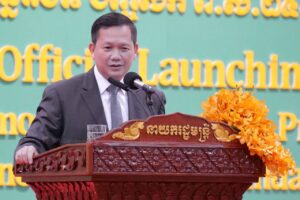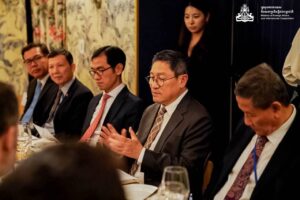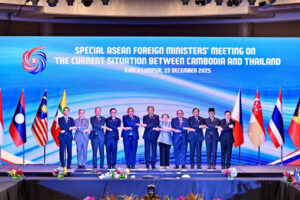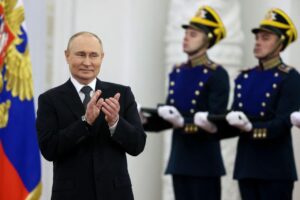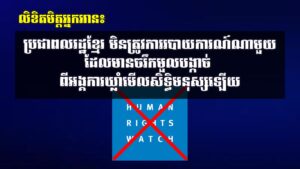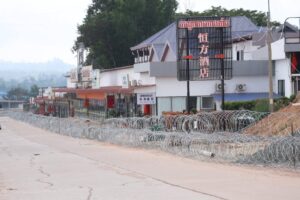Opinion: Cambodia’s Three Conditions: A Responsible Path to Border Stability with Thailand
Khmer Times | In a bold yet measured move, Prime Minister Samdech Thipadei Hun Manet has laid out three simple but firm conditions for reopening Cambodia’s border with Thailand. These are not demands. They are commitments to peace, predictability, and mutual respect. By clearly placing the initiative in Thailand’s hands, the Cambodian leader demonstrates strategic maturity—sending a strong message to both domestic audiences and regional partners: Cambodia wants peace, not provocation.
The recent unilateral closures of multiple border checkpoints by Thailand have disrupted commerce, separated families, and harmed livelihoods of people in both countries. Yet it was not Cambodia that closed the gates. It was Thailand that acted unilaterally and without formal coordination. And worse still, Thai officials have offered conflicting justifications: while some Thai military commanders claim the closures were due to “security concerns,” Thai government official deny that any official closure policy exists. This contradiction is not just confusing—it signals a lack of unity and clarity within Thailand’s own leadership.
Prime Minister Hun Manet’s response is not emotional—it is principled. His three conditions represent a roadmap for avoiding future crises and returning to normalcy based on mutual accountability and coherent bilateral engagement.
The Three Conditions: A Diplomatic Framework
1. Thailand must unilaterally announce the reopening of the border and confirm it will not close it again unilaterally.
This is about trust and consistency. If Thailand wants to be treated as a reliable neighbor, it must demonstrate that its words and actions align. Sudden closures—without consultation, explanation, or warning—create unnecessary friction and uncertainty. The Thai government’s denial of a formal closure policy only adds to the confusion, especially as its own military has clearly enforced the shutdowns on the ground.
2. All border checkpoints must be reopened—without exception.
Selective reopening is unacceptable. Border policy must be comprehensive and inclusive. Economic flow, humanitarian access, and social ties do not operate through a single gate—they rely on full and predictable connectivity. Anything less is a form of selective pressure that undermines bilateral goodwill.
3. Border operations must return to pre-June 7 conditions: 6am to 10pm.
These were long-established working hours that respected the rights and routines of both Cambodian and Thai citizens. Abrupt alterations, especially under unclear or contradictory pretexts, suggest politicization of administrative matters. Cambodia cannot operate in a vacuum of uncertainty created by unilateral and shifting Thai decisions.
More Than a Border Issue: A Test of Mutual Respect
Cambodia is not asking for favors—it is demanding equality and transparency. When Thai authorities close border crossings under vague claims of “security,” but then deny any official closure policy, it reflects a troubling pattern of internal contradiction and evasion. The result is confusion not only for Cambodian authorities, but also for affected civilians and cross-border businesses.
Meanwhile, Thai military personnel have been seen provoking incidents, such as the assault on a Cambodian soldier at Ta Moan Thom Temple—an event that triggered national outrage in Cambodia and raised serious concerns about Thai intentions. This was not an isolated act; it is part of a deeper pattern of Thai unilateralism—decisions made without coordination but disguised as cooperative gestures.
Cambodia’s restraint in the face of these provocations is not weakness—it is responsibility. Cambodia has followed international norms, upheld peace, and sought solutions through dialogue.
Why Cambodia’s Stance Deserves International Support
Prime Minister Samdech Hun Manet’s conditions are not obstacles. They are a structure for peace.
They provide a clear test: Is Thailand ready to engage as an equal partner? Will it respect shared sovereignty? Can it resist the temptation to politicize the border every time nationalist sentiment rises?
The international community—especially ASEAN, the UN, and development partners—should view Cambodia’s position as a model of responsible, law-based leadership. At a time when border disputes elsewhere in the world are escalating into violence, Cambodia is offering a calm, rational, and lawful pathway forward.
By placing the responsibility for reopening squarely in Thailand’s hands, Cambodia is demonstrating both confidence and clarity. This is not a diplomatic standoff—it is a clear message: Cambodia will not tolerate instability, but it will always welcome peace.
PM Samdech Hun Manet’s three conditions are not about demanding submission. They are about ensuring dignity, sovereignty, and long-term stability for both nations. If Thailand chooses to meet these conditions—openly, consistently, and in good faith—it will find a willing neighbor ready to cooperate, not to confront. But if it continues to issue mixed messages, close borders arbitrarily, and provoke through its military, it risks undermining the peace and stability of the entire region.
Cambodia’s stance is firm because its commitment to peace is real. The world should take note.
Roth Santepheap is a geopolitical analyst based in Phnom Penh. The views expressed are his own.


